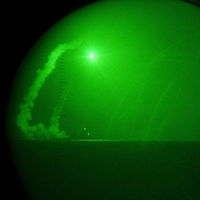After weeks of debate followed by days of confusion, the international coalition enforcing a no-fly zone in Libya has finally taken shape. Spearheaded by the U.S., the U.K. and France, Operation Odyssey Dawn now also includes Canada, Italy, Belgium, Denmark, Qatar and the United Arab Emirates, all of whom have intervened to stop Col. Moammar Gadhafi from carrying out a threatened massacre against his own citizens.
Although the ultimate outcome of the intervention remains uncertain, the Libyan episode has already revealed three important features of contemporary global politics.
First is the issue of U.S. leadership and its global responsibilities. After the debacle in Iraq and the debilitating financial crisis, many expected that the U.S. would consciously limit itself when it came to undertaking global humanitarian missions. Moreover, it was widely believed that with the change in leadership at the White House, the Obama administration would take a step back from its predecessor's emphasis on democracy-promotion. However, the United States' readiness to impose the mandate of U.N. Security Council Resolution 1973 proved both of those hypotheses wrong.

